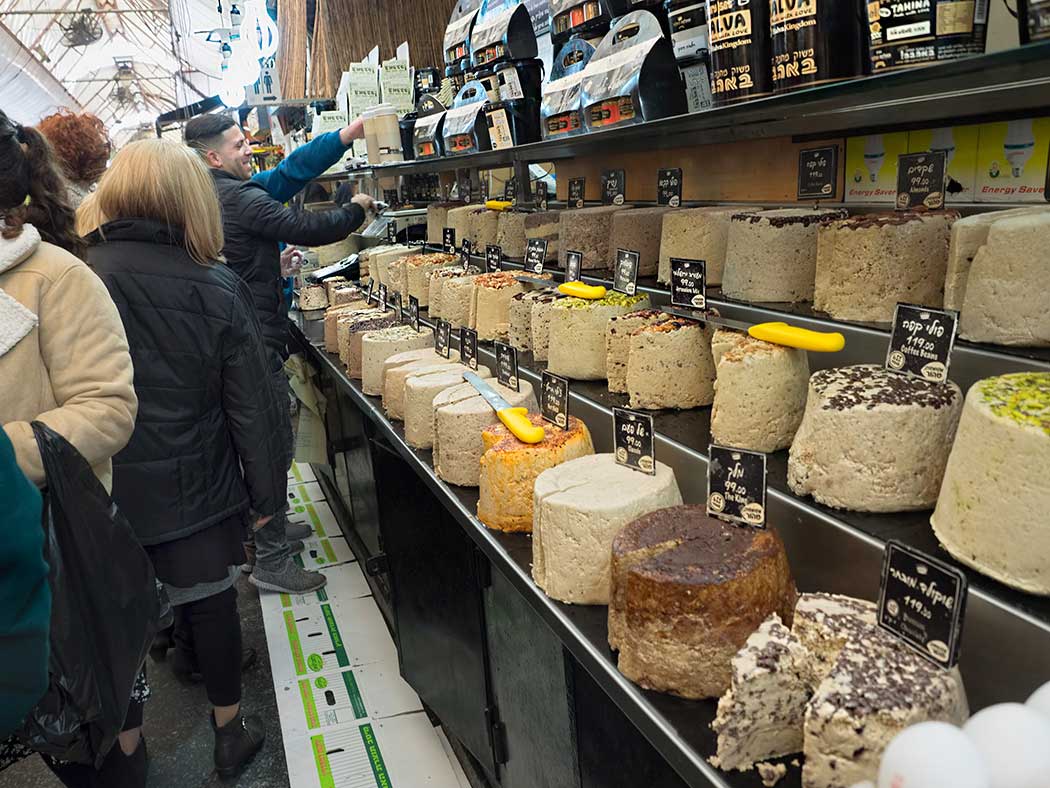
I’ve never been a fan of Halva, a popular sweet in parts of Asia, Africa, and the Middle East. To me, it has always seemed overly sweet and grainy, leaving a strange aftertaste in my mouth. So when I happened on this Halva stand inside Machane Yehuda Market in Jerusalem, I was understandably hesitant to sample their wares.
The owner was patient and encouraging, so I decided to try some just to be polite. As a coffee addict, my obvious first choice was their coffee bean Halva. I was surprised when it melted smoothly in my mouth, with none of the off-putting graininess that I expected. But it was still too sweet for me. No problem, the owner beamed. He handed me a sample of their sugar-free coffee bean Halva, and I practically swooned. The only thing that kept it from being perfect was the price. At nearly $15 per pound, it’s not an everyday treat.
Halva (also known as Halvah and Halwa), can be made with a base of flour or nut-butters such as tahini (sesame seed paste). Recipes vary widely across geographic regions, and the ingredients are often secret and highly guarded. In Israel, since it contains neither meat or dairy products, it is considered the perfect Kosher dessert.

This halva was recently imported to America via opensesamehalva.com